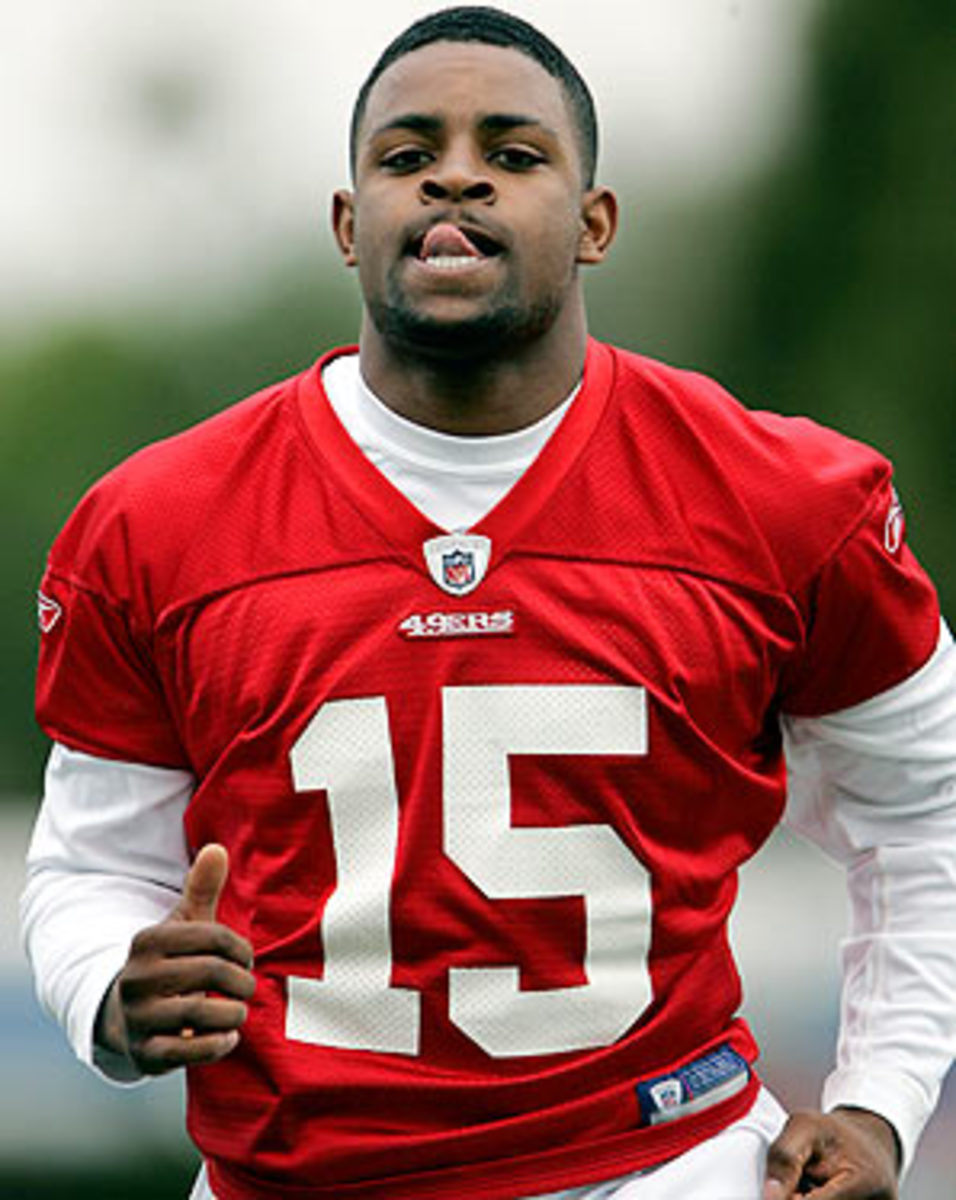
Rookie contracts are ridiculous but don't expect change anytime soon
The overwhelming sentiment around the NFL is that some kind of "Crabtree Rule" will be a no-brainer when the next collective bargaining agreement is negotiated.
In other words, ridiculous holdouts for ridiculous rookie money -- as in the case of 49ers first-round draft pick Michael Crabtree -- will give way to a rookie salary slotting system or some sort of salary cap by 2010.
Commissioner Roger Goodell wants it. You want it. I want it. Even a number of veteran NFL players say they want it.
And the NFL certainly needs it. It is laughable that a gifted but unproven quarterback like No. 1 pick Matt Stafford, who has accomplished less in the NFL than even Ryan Leaf, gets $41.7 million guaranteed. Stafford's guaranteed money is roughly twice what the Patriots' Tom Brady makes in guaranteed money. Meanwhile, Eli Manning's pending blockbuster deal, which has jaws dropping across the league, will guarantee less than Stafford's, at $35 million.
It is even more absurd that No. 10 pick Crabtree, who is coming off an injury and has as many NFL receptions as I do, is holding out for a contract better than No. 7 overall pick Darrius Heyward-Bey's five-year, $38.25 million deal. If Crabtree gets that kind of money, he will earn roughly $3 million more per year than Jerry Rice ever did in a single season.
In the understatement of the millennium, Goodell said before the 2009 draft that rookie salaries were "skewed."
But keep in mind, even though the next CBA is technically an agreement between the NFL Players Association and the league, agents will be involved. In fact, a number of prominent agents who dominate representation of the top picks every year in the draft, will be deeply involved. They pull a lot of strings. They represent veterans and rookies.
A no-brainer the current rookie salary structure will change?
"The very easy answer is no," said Darren Heitner, CEO of Dynasty Athlete Representation and founder of the Sports Agent Blog. "In the end, I don't see the NFLPA giving in."
There are more than a few reasons the vocal, clear-thinking majority of us who see the current system as completely flawed will be undercut by the behind-the-scenes influence of agents. Foremost, when was the last time an agent -- any agent -- chose to do something for the good of the game, if that decision cost players money?
Sure, each NFL team has a player representative whose job is to gauge the pulse of their respective locker rooms and vote accordingly. With so many veteran NFL players voicing displeasure over the high-rising rookie salaries, you would think the NFLPA easily would have enough votes to be agreeable to a slotting system or cap.
Don't be so sure.
Those veteran players upset at the current system believe that if rookies get paid less, then they will get paid more when it comes time to extend their contract or hit the free agent market. But agents will argue that the rookie pay scale rising only helps everyone, driving up free-agent contracts as well. In fact, that is what former NFLPA executive director Gene Upshaw always argued when the subject of a rookie salary slotting system came up.
There is much ammunition behind that opinion, too. The NFL's salary cap number only figures to continue to go up, despite owners' best efforts. Revenues will only continue to rise as well, even in the current economic climate.
And do you honestly think the NFLPA will agree to lowering the percentage of NFL revenue dedicated to player salaries in the next CBA? Of course not. Lowering the percentage of revenue going to players may be the biggest sticking point of all when the two sides negotiate. But rest assured, the final number will not go below the current 60 percent of revenue dedicated to player salaries.
More income. A larger cap. The same percentage dedicated to salaries.
It all adds up to the same, frustrating, incomprehensible, flat-out outrageous thing: Next year, there will be another ridiculous Michael Crabtree holdout. And the year after that there will be another one, then another.
Teams always may have to cope with winning and losing, but as a group, agents never do.
"You have to remember that the veterans once were rookie themselves," Heitner said. "The rookie scale has gone up tremendously. But for the players who have experience, they understand why players of today are also trying to get it. They may change their mind and say they deserve more money than the rookies, but I think a lot of them don't have that short of a memory."
Let's look at the other significant factor in this mess. Neither should it be underestimated that Upshaw's replacement, DeMaurice Smith, has been on the job less than five months and is trying to make a good first impression to the rank and file. If he agrees to a salary cap or slotting system, his first deed representing players would be a dubious one in many players' eyes.
"I think, ultimately, he is going to have something to prove to the players," Heitner said. "I don't see him giving in the first year."
Roger Goodell is right and so are you. It is an absurd system. But that doesn't mean it's going to change anytime soon. In fact, it probably won't.





